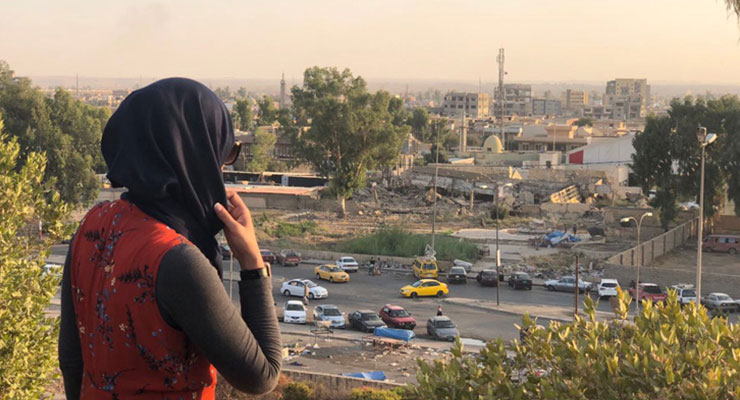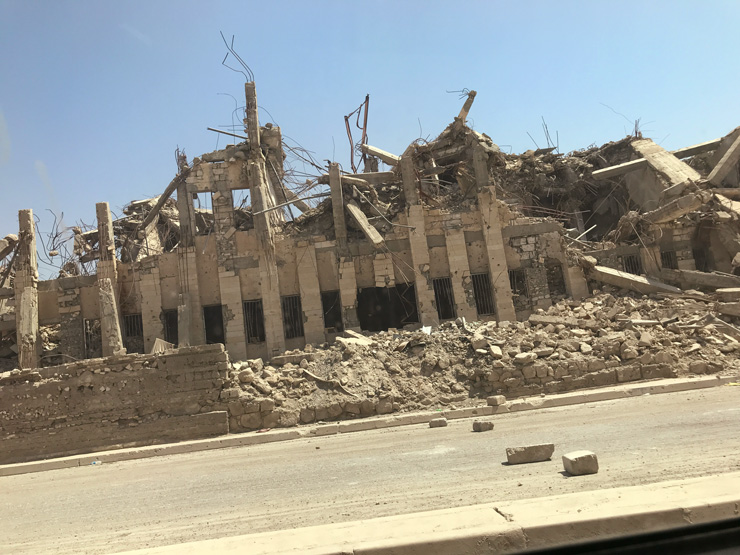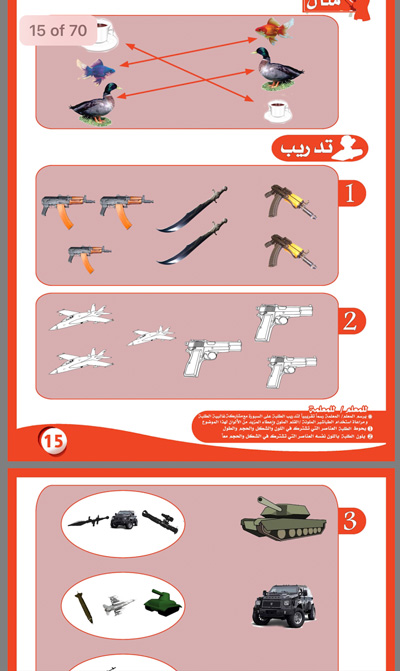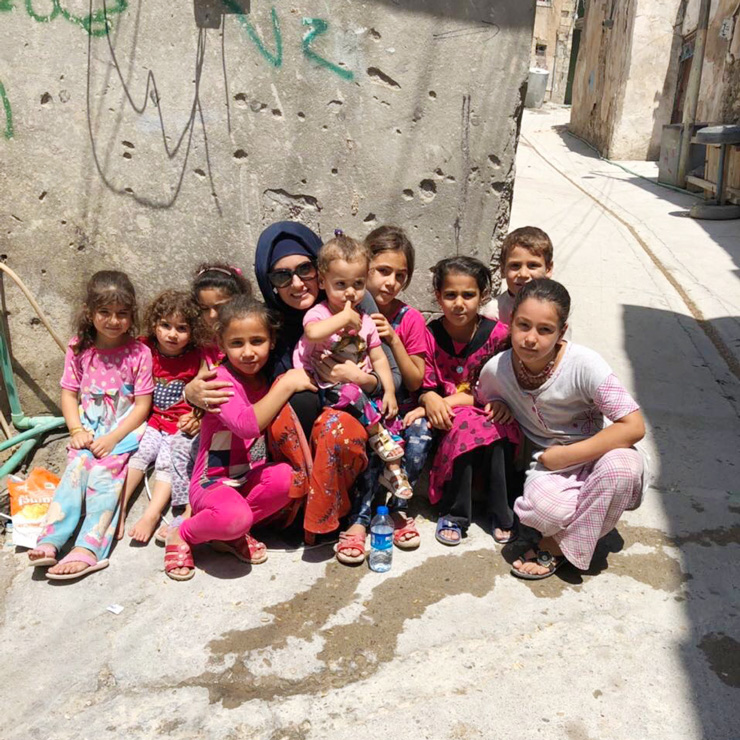
For refugees and others living in war-torn countries, education is both the hope and the potential for a brighter, safer tomorrow.
—
Over our morning coffee and newspaper, we read about how millions of children around the world — and even in our own backyards — suffer from poverty, lack of basic human needs, abuse and many other hardships and circumstances. We feel sad, terribly sad, change the subject, sip on the coffee again and move on. But for those who lived those feelings, experienced them in every minute of their lives, it becomes harder to change the subject.
Have you ever thought of choosing a survival method when you were a child to help you get through the feeling of poverty and war?
Have you wondered how many others may have found the same method to survive the unusual environments that forced them to lose the sense of a happy and healthy childhood?
Well, I did.
When you grow up with parents and family who are always busy thinking of how to provide their children with food to eat, clothes to wear, and most importantly, a bright future, you will have to find a significant survival method to create your own enchanted world. For me, during the protracted siege and war in Iraq which was present throughout my childhood, I decided to make education my safe haven.
I was born in the 80s, a time considered very difficult for Iraqis due to the extended war between Iraq and Iran that lasted for 8 hideous years (1980-1988). Correspondingly, before I could remember much, another war in Iraq was knocking on the doors (The Gulf War 1990-1991). Both wars weakened the country on so many levels, particularly affecting the Iraqi education system.
Education in Iraq during the 90’s was an arduous choice for parents dealing with the lack of food, uniforms, transportation, health care, and most importantly school supplies.
I remember how my two siblings and I shared one pencil to do our homework daily. We had to make sure that we didn’t sharpen it often, so we wouldn’t run out of lead too quickly knowing that my parents couldn’t afford to buy us another new pencil. But that little pencil or lack of materials didn’t stop us from going to school. We walked to school for 40 minutes daily, despite the cold or hot weather, only to arrive at almost an empty classroom which lacked the basic teaching materials, tools and supplies.
For most Iraqis, education took a back seat while millions of children were dying due to poverty and the absence of nutrition.
I remember during my elementary school years when my parents were able to provide us with some food to eat while my aunt managed to sew our uniforms and make school bags out of old clothes. We were lucky if she was able to find an old zipper to add to the top to keep our books from falling out. My mom would make our date syrup sandwiches for school, or in our luxury days, an egg sandwich.
In my first-grade year at school during one of these luxury days, I was eating my egg sandwich during the break when my life had changed forever. That was the moment that I decided what my life mission would be when I grow up.
I saw a twin girl and a boy looking through their old weary bookbag that they shared to see if there were any old crumbs of food in the front pocket to put in their hungry stomachs. I was watching them quietly from my broken school desk in the back corner while the freezing cold air was drying my little face through the broken classroom window. The girl was able to finally find little crumbs that she was able to pick in her one little finger to put in her brother’s mouth. She searched for more to put in her mouth, but to no avail. However, the happiness that was shining from their faces was priceless acting as if they had found a great treasure.
It was that moment when I decided I would do my best when I grow up to help provide the best possible education for children who deserve nothing but a bright future and quality education.
Fast forward. My family and I were very fortunate to survive this era of the lingered conflict and poverty and to make it through high school alive. But when the abhorrent war erupted in Iraq in 2006, we were an easy and direct target for the radical Islamic group due to the sectarian war. What made it worse for us was that each of my parents followed a different sect of Islam: Sunni, and Shia.

Due to the conflict, we were forced to leave the country and make our way to Syria. In Syria, I had to study the last two years of high school. It was challenging for me since the curriculum was very different than the one in Iraq. I gave up on my studies many times because I wanted to graduate from Iraq. But with the help of amazing Syrian teachers who were a great support for me, I was able to pass the 12th grade with good grades. By the time I graduated high school in Syria, we were granted refugee status to the USA in 2008.
The moment our plane landed in the USA, I knew that one day I would achieve the dream of quality education.
I worked extra hard to make this possible, although it took me almost nine long hard years to earn my bachelor’s degree.
I felt embarrassed during this long period of study which should have taken only four years or less if I had been in Iraq and didn’t have to leave because of the war.
I have talked to my high school friend, Hajir, who relates to my story. She, too, left Iraq in the same period that I left and headed with her family to Yemen where she finished her high school and attended pharmacy school. Hajir was one year away from graduating pharmacy school when the war erupted in Yemen. By that time, she had joined her husband in the USA and started her education journey all over again. It took her a total of 8 years to complete her bachelor’s degree. When Hajir graduated this past December, I cried watching her walk the stage. Later, I told her with deep sorrow:
“Hajir, we are the lost generation. Even though we can finally graduate, we have lost so much of our lives just trying to adapt to new things that were forced upon us.”
With beautiful eyes full of tears Hajir responded, “I know we will never give up on our education. We have made it this far, and it is time to continue no matter what others are going to say.”
12 years after my long educational journey, I travelled to Iraq-Mosul, a city that was occupied by ISIS (2014-2017). The reality was harder than I could imagine. Amidst the chaos in the city and destruction that was caused by ISIS members and the liberation that ensued, education had suffered in the city on many different levels.
After ISIS seized control of the city, they imposed their own radical education in schools. This left parents in a hard position having to choose between sending their children to school to learn ISIS’ curriculum, or keeping their children home to face the risk of execution if ISIS found out that parents refrained from sending their children to school. As a result, hundreds of thousands of children have lost the opportunity of education. Also, children who were sent to study under ISIS’ rule in the city were not accepted by the Iraqi government after the liberation.

When I met with Abu Ahmed in Mosul in 2018, he shared this story with me: “After reading the radical curriculums and looking over first and second grades books, where they ask students to find the sum of 4 bullets and 2 guns, there was no way for my wife and I to agree on sending our children to school.”
During this visit, I met with school-age children who told me that they didn’t attend school for three long years under ISIS rule. Their hope was that liberation would be the salvation which would allow them to attend school. But this dream was soon ruined when the schools were destroyed by ‘liberation missiles’. As a result, those beautiful children have never attended school even though they should be in fourth and fifth grade.
I sat there on top of the rubble and felt like I wanted to give up on everything at that moment. How can those hundreds of destroyed schools be rebuilt? I was sure that those children were living a miserable and sad life. But with eyes full of hope, a girl who had never attended school told me…
“We want the government to build our schools. We want to attend school.”
It was a moment that woke me up. My feelings froze. I couldn’t cry or laugh. I just drew a smile on my face that followed the girl’s smile.
I realized that this little girl taught me how to find hope in the darkest place on earth. It broke my heart because I had hoped that my generation was the last lost generation, but the prolonged war and conflict in Iraq had only created more lost generations. But for those children, what motivities them and keeps them alive is hope. They fall asleep on hope only to wake up on another one. In reality, this hope might be unreal, but deep inside their little hearts, this hope is big, bright and shining vividly.

This realization helped me to see that I have lived as part of the lucky generation. It is unfair to keep calling myself or my generation the lost one. Yes, we have eaten only date syrup sandwiches, but those children have nothing to eat. I had shared one little pencil with my siblings, but for the children of Mosul, those pencils were replaced with guns and knives to teach them how to slaughter. Yes, I have walked to school 40 minutes in the morning, but those children have no school to walk to.
For us, it is not optional to choose our parents, where to be born, or our names. To be born and raised in a war zone is not an option that we choose. Living in a war zone has forced people to live in a disastrous situation without their basic rights, including education. Imagine how many big dreams those little children had which have been crushed and buried under the rubble of this ugly war.
Thankfully, my parents made the choice for us when we were younger to leave a war zone country in search for a better life, one filled with opportunities to build us a brighter future. They refused to let our dreams be crushed and buried under the rubble of battles and violence.
When my mom sent us to school during war time knowing that she was risking our lives, she used to tell us:
“If we stop education, it is better for us to die.”
It is important that we continue to fight against all the odds to pursue our dreams. With proper education, I believe we can build a better society and future for others. Therefore, giving up my education now is not an option since it is part of a productive process to help others who have suffered war’s brutality. Never doubt that education can be a weapon far more effective than guns and mortar shells.
You may also enjoy reading Life as a Refugee: the Struggle to Create a Better Life, by Noor Ghazi